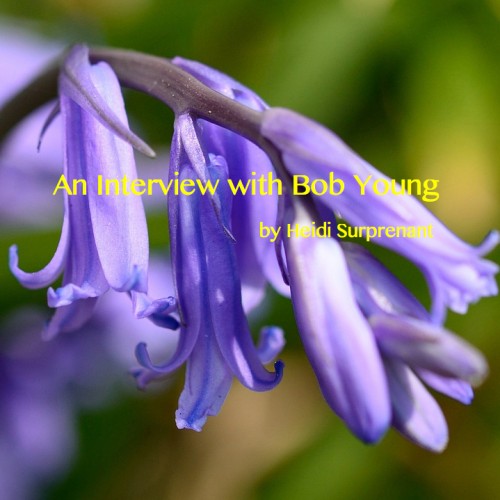An interview with writer Bob Young, author of the WWII-era historical novels, When Love Shaped Us and Crushed Love, Well-Shaken.
Interviewer: Heidi Surprenant, member of the Steps to Write Spirit Team
Question #1: What is historical fiction?
Reply: To me historical fiction is the creating of story in the midst of a historical time period enhancing the story with the cultural, social, scientific, and political realities of an era. The time period impacts the story and shapes the plot and characters and how they act and react. It’s a lot of fun to write historical fiction.
Question #2: What do you find most attractive about this genre?
Reply: I like the genre because it forces me to think twice about how I write dialogue. The fact that I’m in my sixties now, the genre is a guilty pleasure. I get to write old instead of having to write in the vernacular of 2015 which just isn’t as rich in my mind.
Question #3: What do you find most challenging about this genre?
Reply: The challenge is that you have to decide whether you are going to do the research in a particular moment of your plot to enrich the moment. For the story I’m writing now, I had to learn about the early years of Hitler’s reign. It had been a while since I had accessed the New York Times news section for any reason. The reporting was an incredible tool to making my story powerful and driving the motivation of my protagonist. But it’s painful to do the research and put a hold on the writing. If I didn’t have the love of the researching, I would just write non-stop but the story wouldn’t be as rich.
Question #4: Do you have any suggestions for writers who might be interested in composing a piece of historical fiction?
Reply: My suggestion is that a writer trying historical fiction pick a time period that attracts them so the research is fun also. I realize that WWII had been heavily mined by many writers but it was the era about which I had the most interest.
Question #5: What research tools have been most helpful for you?
Reply: For detail about particular battles, the U.S. Army now publishes online the histories they assembled soon after battles to give the wounded so they would know the bigger picture of the fight they had known in a personal way. These histories are eye opening and don’t hesitate to share the successes and failures. The other enjoyable source is the great historical works available these days about every age. And as I’ve already mentioned, newspaper archives are terrific.
Question #6. What drew you to the WWII era?
Reply: I’m drawn to WWII because my parents lived it and I’m jealous of the young people who were the younger brothers and sisters of the Greatest Generation. They had a front row seat as the fighting generation fought very frightening enemies across the globe. My jealousy moves me to write about WWII from the perspective of those too young, broken, or disenfranchised to serve at that time.
Question #7: Do you have any preliminary plans for novels or stories from a different era? If so, what time period(s) interest you most?
Reply: I’ve written a manuscript set in present day, but I have a lot of work to do to get it to the place my WWII manuscripts have been developed. My present day story needs a lot of work to give it the color and complication I think genre writing gives more naturally.
Question #8: Have you been strongly influenced by reading historical fiction? Who are your favorite authors, and what are your favorite books in this genre?
Reply: I’m a big fan of the historical fiction that is available on T.V. Downtown Abbey is a guilty pleasure. I own some British and Australian historical epics. I also enjoy collecting classic Hollywood movies. Anything with William Powell, Bogart and Becall, or Myrna Loy. As I like to kid at Writers Group, I am the pulp fiction wing of our group.
Question #9: I’ve heard a lot about “creative non-fiction.” Any insights into what this is (and isn’t)? How does it differ from historical fiction? Have you ever written any creative non-fiction?
Reply: I’ve heard about ‘Creative Non-Fiction’ but I really don’t know much about it. I’m happy you asked the question. I’m going to check it out so I can answer this question some day.
